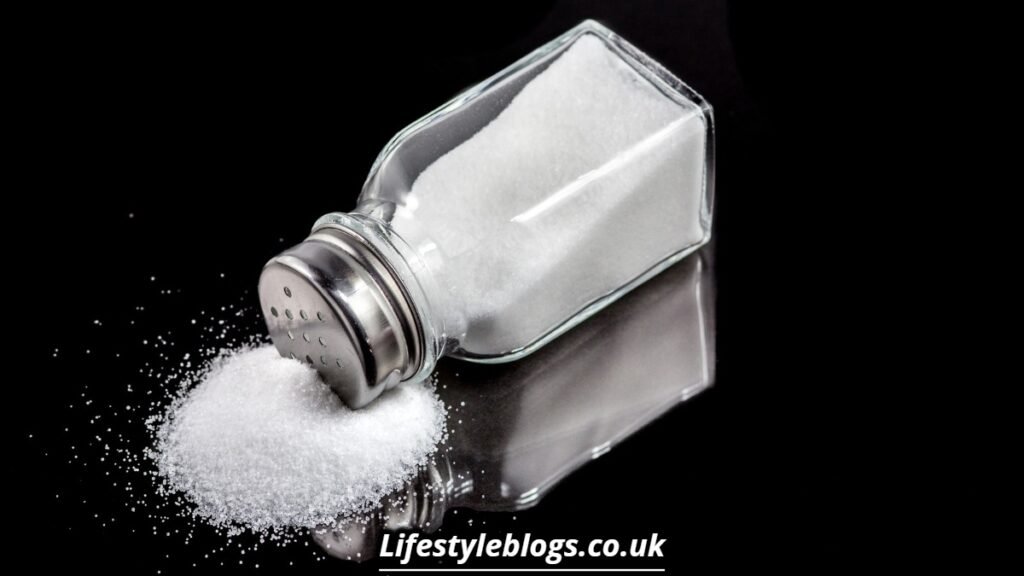Introduction: A Pinch of Misfortune?
Ever knocked over a salt shaker and instinctively tossed a pinch over your left shoulder?
You’re not alone.
Spilling salt is one of the oldest and most widespread bad luck superstitions in Western culture. But where did this belief come from — and does it hold any spiritual or religious truth?
Let’s break it down: history, symbolism, religion, and cultural psychology.
The Origin of the Superstition
The belief that spilling salt brings bad luck dates back thousands of years.
1. Ancient Rome
- Salt was precious — used as currency (the word salary comes from sal, meaning salt).
- Spilling it was a waste of wealth — believed to attract misfortune.
2. Leonardo da Vinci’s “The Last Supper”
- In the painting, Judas Iscariot — the disciple who betrayed Jesus — is shown having knocked over a salt container.
- This reinforced the idea that spilling salt was connected to betrayal, bad omens, or evil forces.
3. European Folklore
- Salt was believed to repel demons and evil spirits.
- Spilling it left one vulnerable to dark forces — unless the balance was quickly restored.
Spiritual Meaning of Spilling Salt
Spiritually, salt is more than just seasoning — it represents:
- Purity
- Preservation
- Protection
- Spiritual grounding
Spilling Salt Could Symbolize:
- A break in protection
- Negative energy entering your aura
- Imbalance in your spiritual field
- A warning from the universe
Verdict (Spiritual View):
Spilled salt is often seen as a symbolic disruption of harmony or protection, which is why many traditions include a way to counteract the energy shift.
Religious Perspectives
Islam
In Islam, salt has no superstitions attached. It is simply a blessing from Allah — used in food, health, and cleanliness.
- Superstition is discouraged.
Prophet Muhammad ﷺ said:
“There is no ‘Adwa (contagion), no Tiyarah (evil omen)…” (Sahih al-Bukhari)
Verdict (Islam):
Spilling salt is not bad luck. It’s simply an accident, and believers should not fear omens.
Christianity
- The Bible refers to believers as the “salt of the earth” (Matthew 5:13), symbolizing value, wisdom, and preservation.
- Spilling salt isn’t mentioned in scripture, but old European Christian traditions treated it as a bad omen — especially linked to Judas.
Verdict (Christianity):
Not a sin, but in Christian tradition, spilling salt is seen as symbolically unlucky, especially during sacred meals.
Hinduism
In Hindu culture, salt is used in pujas (prayers) and ritual purification.
- Spilling salt is not specifically seen as bad luck, but wasting food or resources is considered inauspicious or disrespectful to Lakshmi, the goddess of wealth.
Verdict (Hinduism):
Not necessarily bad luck — but wastefulness is spiritually discouraged.
Buddhism & Taoism
In Buddhism and Taoism, salt isn’t considered magical, but it is symbolically purifying.
- In some East Asian cultures, salt is used after funerals to ward off evil spirits.
- Spilling salt may be viewed as loss of protective energy, but not a serious spiritual offense.
Verdict (Buddhism/Taoism):
May be considered mildly unlucky, but not a core belief.
Cultural Superstitions Worldwide
- Western Culture (USA, UK, Europe): Spilling salt = bad luck. Remedy: throw a pinch over your left shoulder.
- Germany: Also believed to attract misfortune or arguments.
- Russia: Spilling salt means a quarrel is coming.
- Japan & China: Salt is purifying, but spilling it isn’t widely considered unlucky.
Why the Left Shoulder?
You’ve probably seen people throw spilled salt over their left shoulder. But why?
The belief:
- The left shoulder is where the devil or evil spirit supposedly waits.
- Throwing salt there is believed to blind or ward off the negative entity before it can do harm.
Think of it as a spiritual “salt shield.”
Scientific or Practical View
Let’s face it — there’s nothing inherently unlucky about sodium chloride.
- From a logical perspective, it’s just a mess.
- The idea of throwing salt is more about habitual behavior and cultural memory than reality.
That said, salt’s long history as a preservative and purifier makes it emotionally significant to people.
How to Reverse the Bad Luck (Folklore Remedies)
If you do spill salt and you’re feeling nervous, here are some traditional remedies:
| Remedy | Believed Effect |
| Toss salt over your left shoulder | Wards off the devil/negative energy |
| Say a prayer or affirmation | Resets your energy field |
| Clean up respectfully | Shows reverence to a sacred substance |
| Light incense or sage | Restores balance and peace |
Do they work? Spiritually — only if you believe they do. Psychologically — they help ease your anxiety.
Personal Reflection
When I first spilled salt at my grandma’s table, she gasped, handed me a pinch, and said, “Left shoulder — now!”
I did it without question, but later I asked her why.
She said, “Because my mother did it. And hers before her. That’s enough reason.”
And maybe… sometimes tradition itself is the point, not the outcome.
Final Verdict: Is It Really Bad Luck?
| Belief System | Verdict |
| Islam | No — superstition discouraged |
| Christianity | Symbolic, not biblical |
| Hinduism | Wastefulness discouraged |
| Buddhism/Taoism | Mild symbolic meaning only |
| Western Culture | Yes — deep-rooted superstition |
| Science | No — purely psychological |
Final Verdict:
Spilling salt isn’t truly bad luck. It’s a blend of ancient symbolism, religious tradition, and cultural habit. Whether it affects you depends more on your belief system than the salt itself.
So next time you tip the shaker — pause, smile, and maybe toss a little pinch behind you… just in case.
